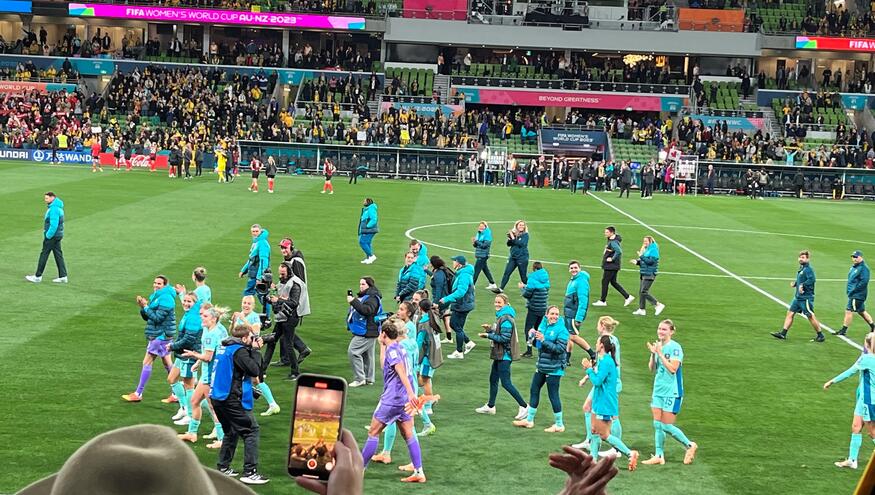25 August; Mrinal Asija - Master of Management (Marketing) student
Coming to Australia to do my masters at the University of Melbourne, I knew it was a country that loved its sport. I had experienced a big Australian sporting event myself when I visited Melbourne to watch the final of the Women’s T20 World Cup in 2020. In fact, that trip played a huge role in encouraging me to choose Australia as my study destination.
But it was only after I moved here in 2022 when I realised how deeply ingrained sport was in people’s lives. “What footy team do you go for” is one of the first questions you get asked on meeting someone for the first time. And what about the public holiday on the eve of the AFL Grand Final!?
Being a big sports fan, I knew the FIFA Women’s World Cup would be one of the most exciting parts of my time in Australia. I had been following Australia’s Women’s National Team – The Matildas – and warmed up for the tournament by watching the documentary made on the team. But I wasn’t prepared for the sensory and emotional overdrive the tournament was going to be.
Never before have I seen a whole country come together and rally behind a sporting team the way the Australians did for the Matildas during the World Cup, and I jumped on the bandwagon myself. On match days, I was part of the flood of people moving through the CBD with Green and Gold scarves wrapped around their necks to assemble at AAMI Park or Federation Square. Once there, I cheered for every single Matildas goal, corner, free kick and the opposition’s mistakes the loudest I could, knowing very well that my voice would still be a drop in the ocean of the crowd’s roar.
The football, or should I say soccer, mania even followed me everywhere, even into the classroom. The professors for my marketing subjects made sure to find examples from the World Cup and link it to the course topic. Friends and classmates who had never followed women’s football earlier were now engaging in long conversations about the games. Wherever I went, there were people discussing the Matildas’ chances. Every street I crossed had an advertisement featuring the team or a player. The world around me was gripped by the Matildas fever!
Getting to experience an Australian home World Cup from this close gave me a sense of belonging unlike any I had experienced before. For a month, I was united with millions others by the one hope we all carried in our hearts – to see the Matildas keep progressing in the tournament. That is the power that only sport has – the power to unite complete strangers so strongly – and I consider myself very fortunate to get to experience this during my time in Australia.
I would encourage all my fellow international students to get involved to make the most of your time here and to experience something that is a huge part of Australian culture. Even if you have never taken interest in sport before, don’t deny yourself a chance to experience the joy and community it can bring. Pick a sport team to support, go to the games, join fan clubs, or even try out a sport.
There are many ways you can get involved in sport at the university as well. Melbourne University Sport hosted a viewing party for the FIFA World Cup and you can drop in to watch any sport, or play some foosball or table tennis, at Social Space A at Nona Lee Sports Centre. As for me, I will give kicking some footballs a go at the next Melbourne University Soccer Club’s All Gender Games, after being encouraged to join by a friend during the World Cup.


